Exeter salutes King’s lasting legacy
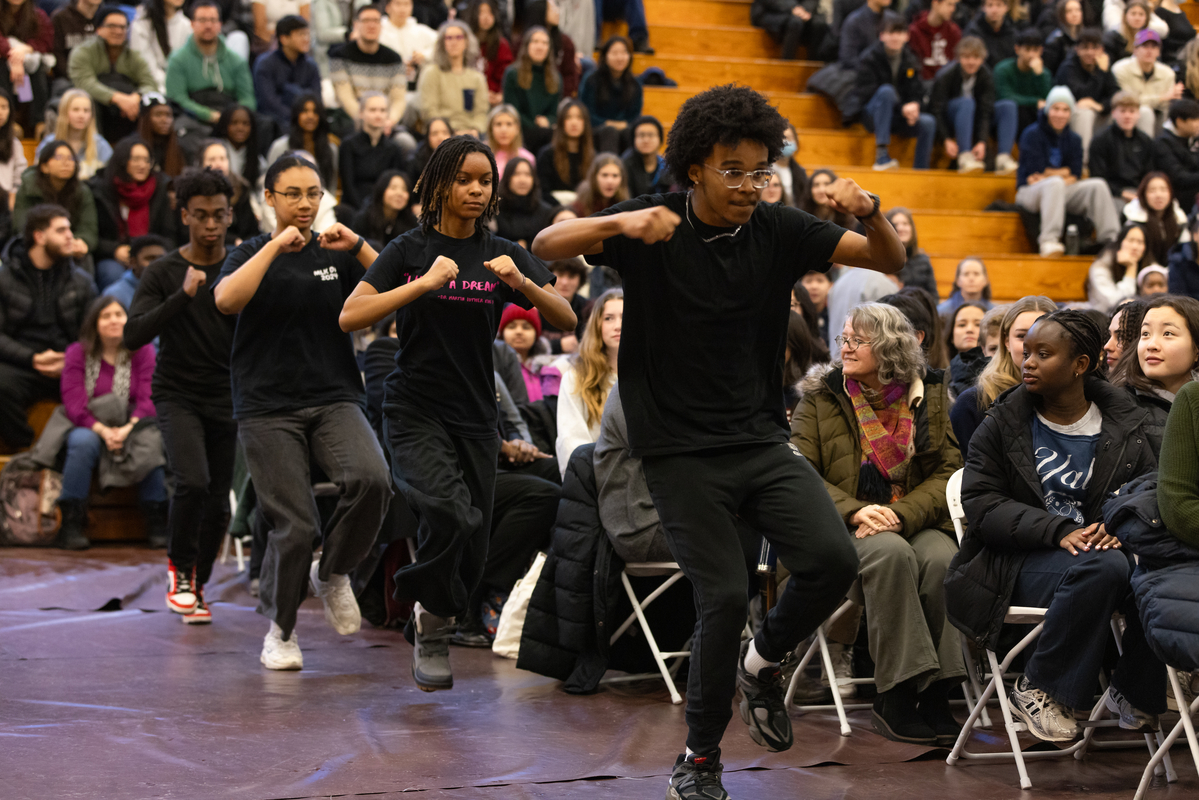
Academy's 35th observance of civil rights icon's birthday includes celebration, introspection.
On Monday, Exeter hit pause on winter term to commemorate the life and legacy of the civil rights leader Martin Luther King Jr. with a busy slate of speaker presentations, workshops and discussion.
“I think if there was any place I wanted to be today to celebrate Dr. Martin Luther King Jr.’s life and legacy, it would be with young people, it would be with educators, and it would be with people who live and learn in communities,” the poet and writer Saeed Jones said in his keynote speech, delivered before an audience of students, faculty and staff in Love Gymnasium.
Jones, author of the memoir How We Fight For Our Lives (2019) and the poetry collection Alive at the End of the World (2023), among other books, read from his work-in-progress, a memoir titled “Home Out There.” In the passage, Jones recounted some of the difficult early experiences that shaped one of his “queer black poet ancestors,” Langston Hughes.
A leader of the Harlem Renaissance, Hughes exchanged letters with Martin Luther King Jr., who admired Hughes’ work and even included lines from his poems in some of his speeches, Jones said. “Something that I think both of these figures, these titans of American history and thought and letter have in common is love,” Jones said. “For both of these figures, their love was not diminished by hate or adversity… . I think with people like Dr. Martin Luther King [and] Langston Hughes in particular, it’s like giving oxygen to a candle. The flame just gets brighter.”
The event had kicked off with a performance by baritone Philip Lima, who delivered a stirring operatic rendition of King’s famous “I Have a Dream” speech. Student dance groups Precision and Outkast also took to the floor during the program, while Vera Aimunmondion ’24 got the crowd clapping and singing along during her performance of the gospel song “This Little Light of Mine.”
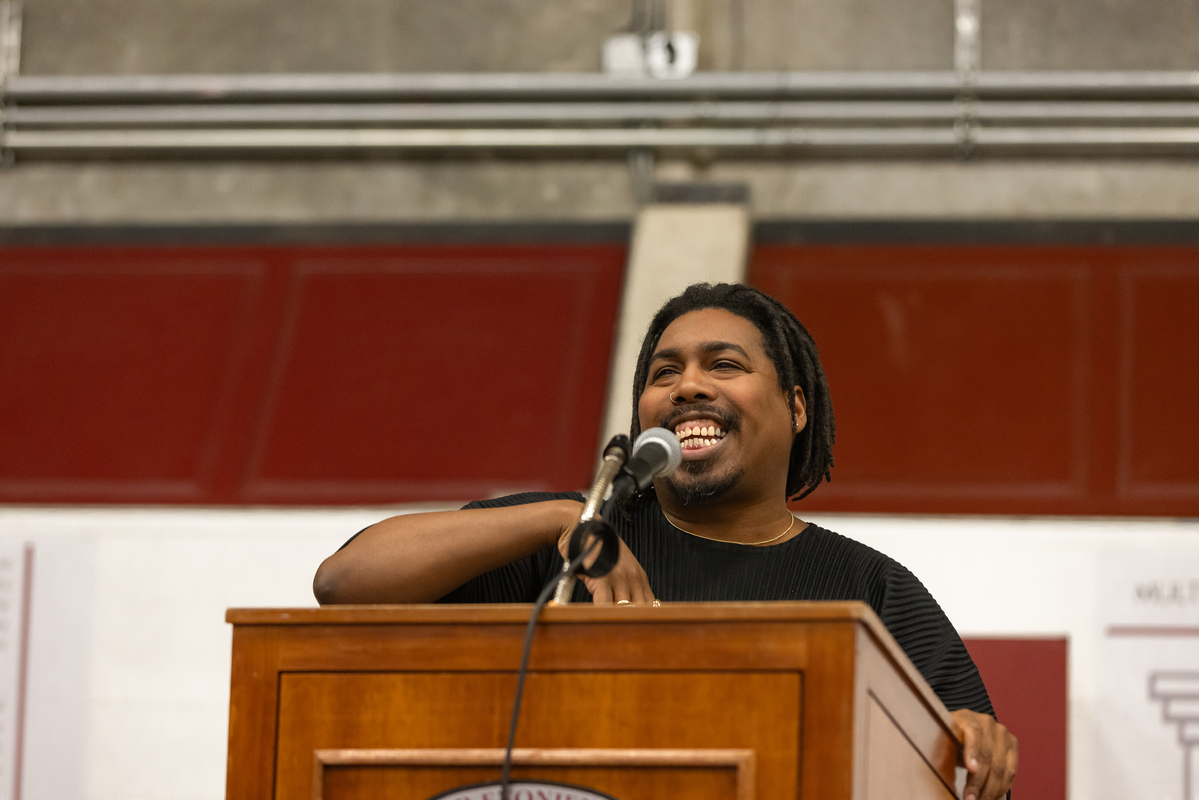
In his welcome remarks, Principal Bill Rawson ’71; P’08 recalled a trip he took with his son to Mississippi and Alabama, where they visited various sites important to the Civil Rights Movement. When they visited the Baptist church in Montgomery, Alabama, where King had preached, the guide showed them a wooden lectern King had used when he spoke outside the state capitol in Montgomery at the end of the Selma to Montgomery voting rights march. “How long?” King asked in that speech. “Not long, because the arc of the moral universe is long, but it bends toward justice.”
Rawson recalled how the guide asked him and the other members of his group to step behind the lectern and recite a few words of King’s famous speech. “I don’t think you can have an experience like that and not in some way feel changed,” he said. “That’s my hope for all of you today…that at the end of the day you feel in some way that you’re not quite the same persons you were at the start of the day.”
And a child shall lead them
Before Rosa Parks came Claudette Colvin. Nine months before the famed heroine of the Civil Rights Movement was yanked off a Montgomery, Alabama, bus for refusing to give up her seat to a white person, 15-year-old Colvin did the same thing on the same bus line in the same city. She was arrested and jailed, too, but Colvin’s name is mostly lost to history.
Workshop leaders Amber Smith and Alicia Biggs shared Colvin’s story with three dozen Exonians in Grainger Auditorium to illustrate that teenagers and students like themselves have been pushing to make the world better for a long time, often without recognition. “You may not always be known for your advocacy, but that doesn’t mean it didn’t make an impact,” Smith said.
In “Advocacy in Action: Student Movements Change the World,” the Colorado educators shared many examples of largely forgotten young people as catalysts. Like 8-year-old Sylvia Mendez, the face of a desegregation lawsuit in California paved that way for the landmark Brown v. Board of Education ruling in 1954; like the Student Nonviolent Coordinating Committee, who trained its teenaged members to endure shameful harassment and abuse for the right to sit at lunch counters in North Carolina in 1960; like the hundreds of thousands of students who boycotted New York City public schools in 1964 to spotlight de facto segregation across the city.
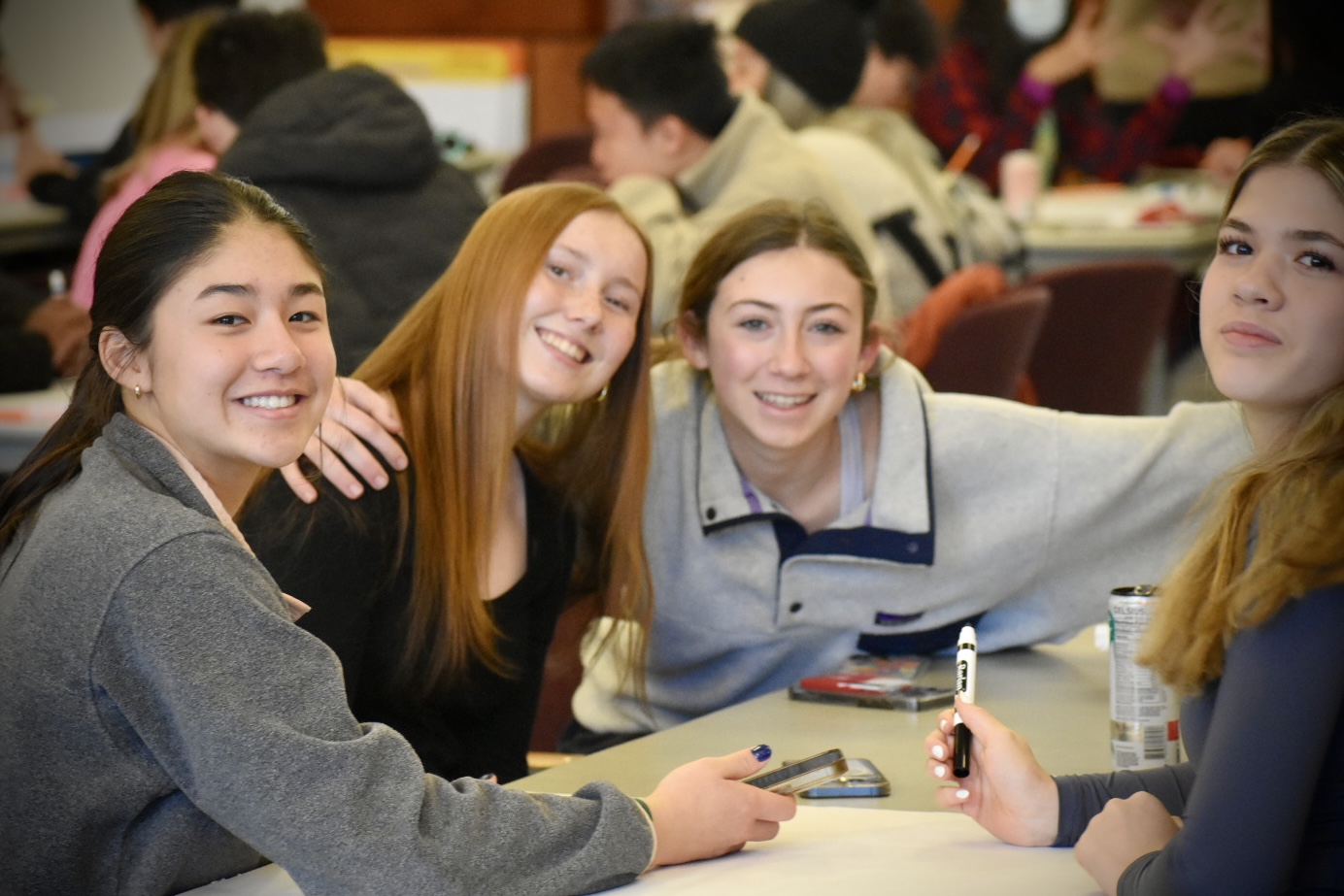
Smith and Biggs reminded the Exeter students that young people are still among society’s most potent advocates, citing climate-change fighter Greta Thunberg, gun-control activist David Hogg and Afghan education activist Malala Yousafzai as examples.
“You’re not always going to benefit directly from your own advocacy,” Smith said. “Dr. King didn’t. But he would look at what’s going on in this room today and say, ‘OK, we’re getting there.’”
Finding purpose in King’s story
In Assembly Hall, students heard a presentation by Corey Johnson, an investigative reporter for the national news organization ProPublica. Johnson, the 2025 Richard and Joan S. Strickler Exonian Fund Speaker, shared the story of how he got started in journalism, after struggling to find a job just out of college and moving home to live with his mother.
“There was a time in my life when most people looked at me and considered me to be a…loser, somebody who had wasted a whole bunch of time and a whole bunch of talent and a whole bunch of possibilities,” Johnson said. But after reading a book about Martin Luther King Jr. and the FBI, the young Johnson was motivated to find out more. His persistence enabled him — months later — to connect with the widow of a man who headed Atlanta’s police intelligence division during the 1950s and ’60s; she let him look through boxes of files documenting the division’s surveillance of King and other civil rights leaders and activists.

Journalist Corey Johnson told Exeter students he discovered his purpose and pursued his career “just from studying what happened to King.”
“That’s how I discovered my purpose,” Johnson said of the experience. “That one of my purposes was revealing things of major importance to people, so that people can see it just in the way that people saw what was happening to King and the Civil Rights Movement.”
From that initial spark, Johnson ended up pursuing a career in investigative reporting, working for the Atlanta Journal-Constitution, the Center for Investigative Reporting in California and the Marshall Project, among others. He shared three of his change-making projects with the students, including a three-part series for the Tampa Bay Times that revealed how a lead smelting plant in Florida endangered hundreds of its workers and polluted the surrounding community. The series, which won Johnson the 2022 Pulitzer Prize for investigative reporting, led to record fines, stronger oversight, and immediate safety improvements.
“I’m talking about purpose, passion and persistence,” Johnson said. “Just from studying what happened to King, I discovered my journalism, my purpose.”
Institutions as vehicles of change
Exeter’s MLK Day observances regularly welcome back alumni as presenters. Their real-world experiences and messages can offer an authenticity to Academy students even the most polished professional speaker may not be granted. Certainly Jameel Mohammed ’13 has bona fides. An artist and designer, Mohammed founded luxury jewelry brand KHIRY in 2016 while an undergraduate at Penn. His jewelry has adorned the likes of Michelle Obama, Megan Thee Stallion and Halley Berry. In 2021, he was named to the Forbes 30 Under 30 List in the Art and Style category. Last week, Mohammed was named the winner of the inaugural Tiffany & Co. and Council of Fashion Designers of America Jewelry Designer Award.
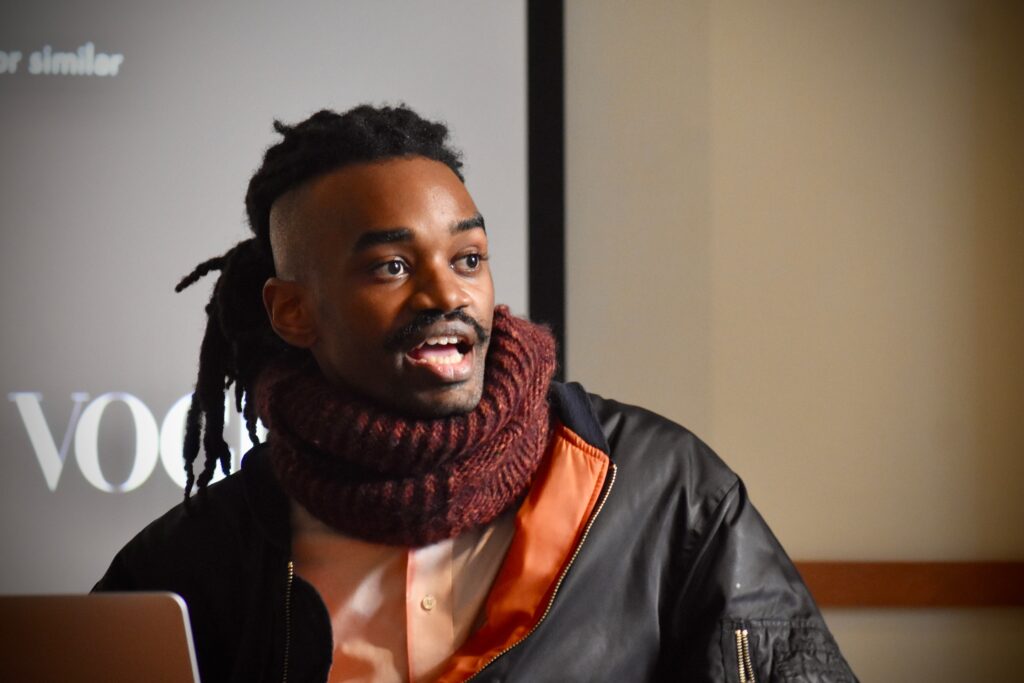
Jameel Mohammed ’13 spoke to students about institution building and how established institutions can be both a vehicle or an impediment — for change.
Mohammed spoke to a room full of students about institution building. “Bringing Black culture into the luxury space has been a confrontational objective for me, and the amount of work and effort over the last 10 years has been exhaustive. But how is that work being instituted so that it will survive me? That’s where I’ve been thinking about institutions and their roles.”
Mohammed said he has developed an appreciation that institutions — cultural, educational, commercial — are vehicles for lasting impact because they “are not just bound by one person or a small group that can be worn away over time.
“Whatever way you want to change the world comes down to either creating your own institutions or contending with the existing ones.”
He tasked students with coming up with a list of elements that define institutions, a list that included some degree of hierarchy, structure, ideology, adaptability, desirability and more. They discussion then steered toward how these elements might help or hinder every good Exonian’s purpose: to make an impact on the world.
“The world is thick; the way things are is deeply defined,” Mohammed said. “The world is not just waiting for you to amend it. Institutions are part of making change in the world.”
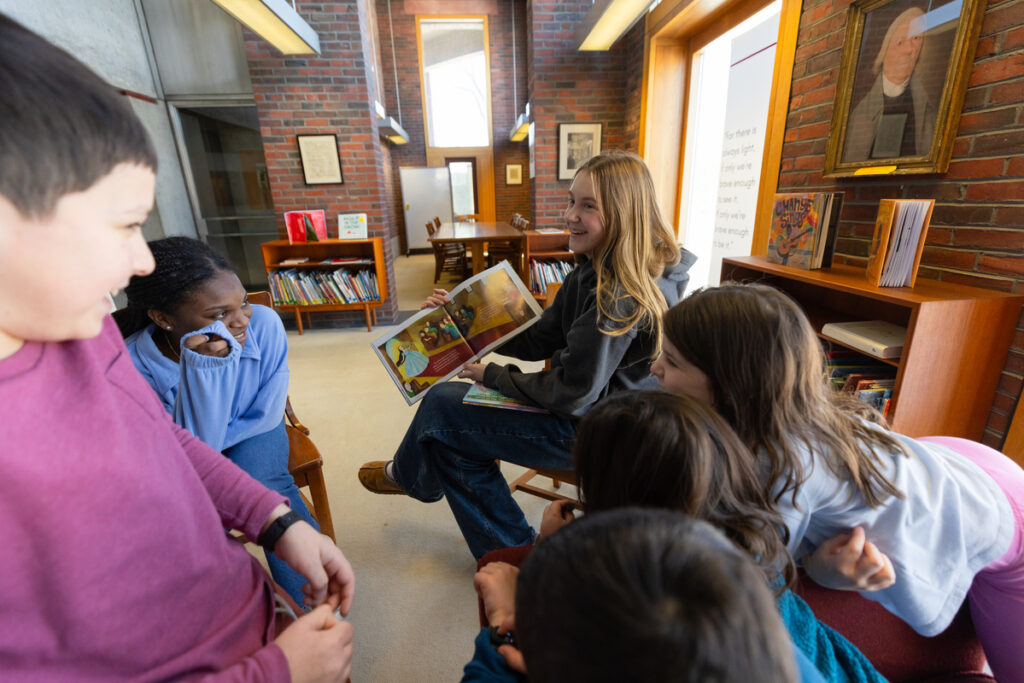
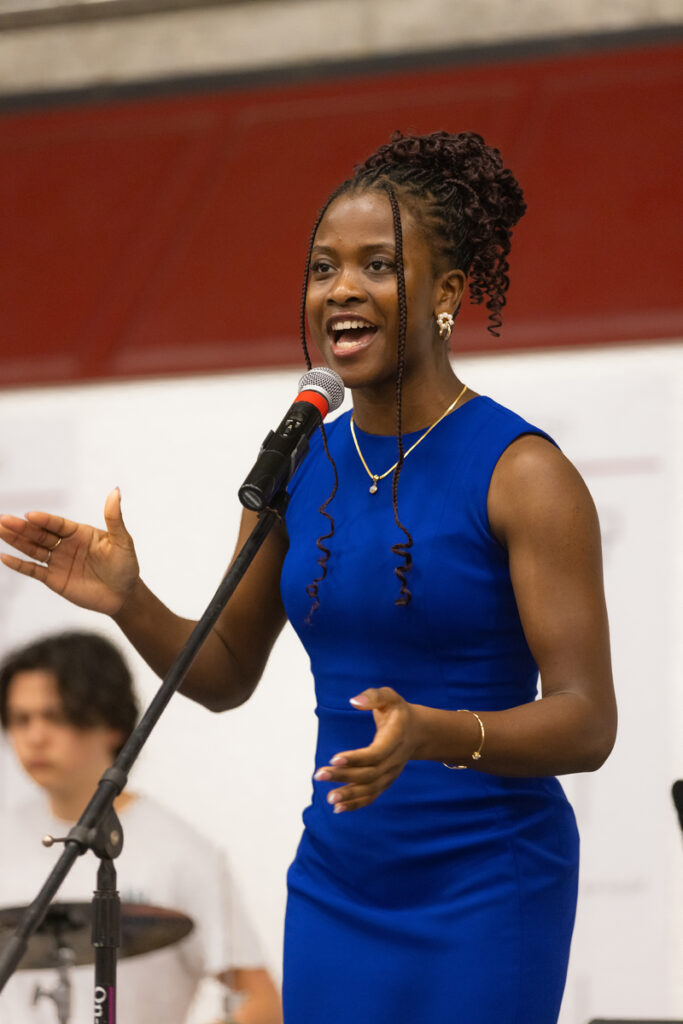
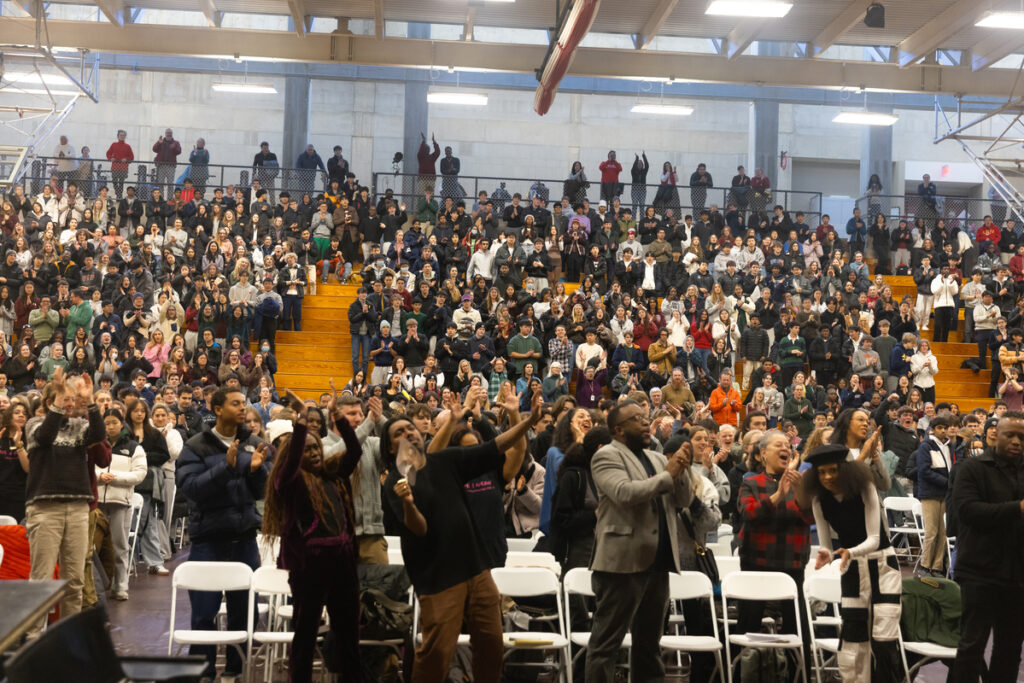
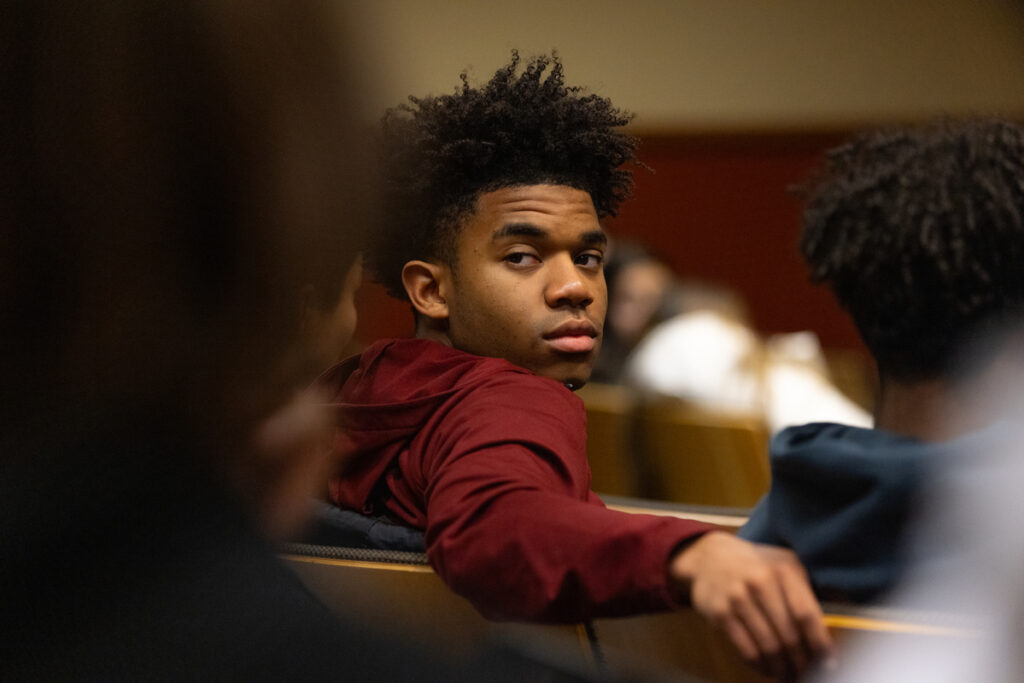
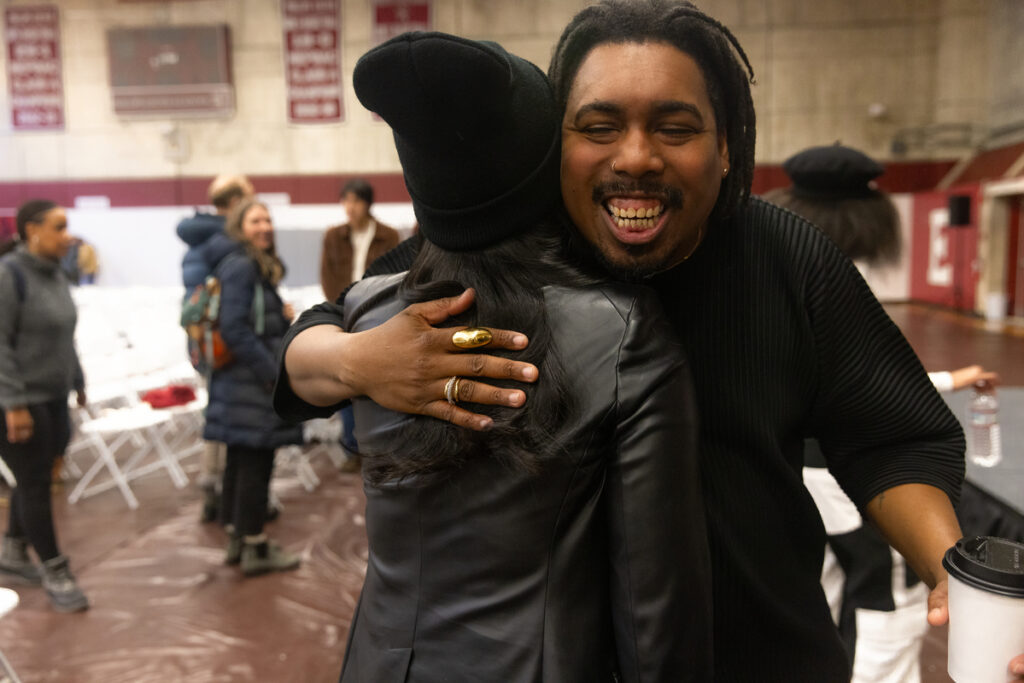
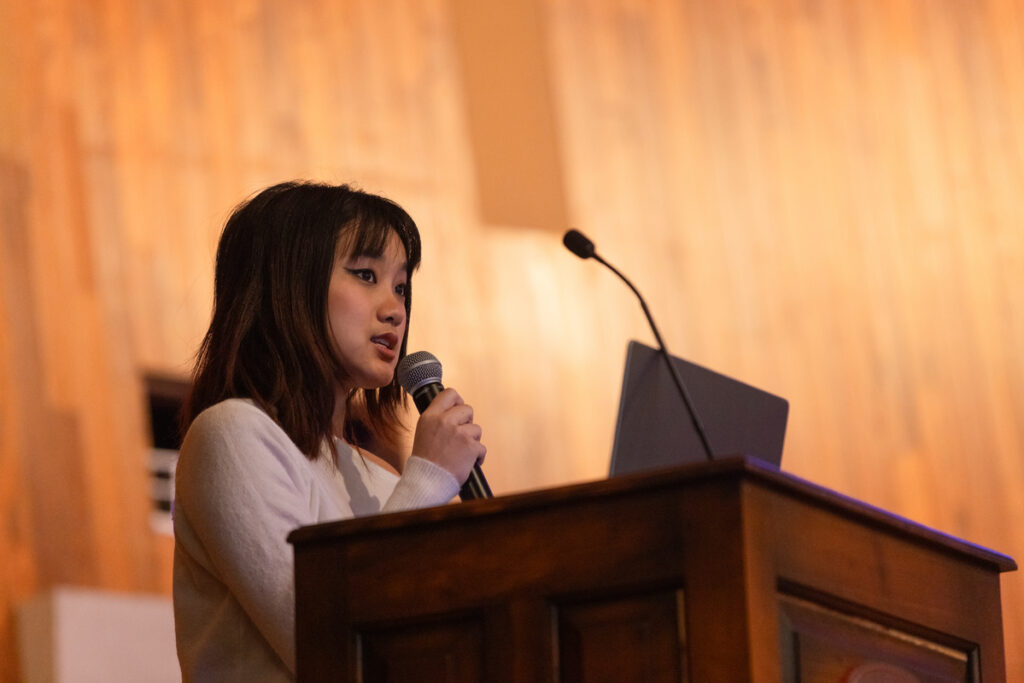
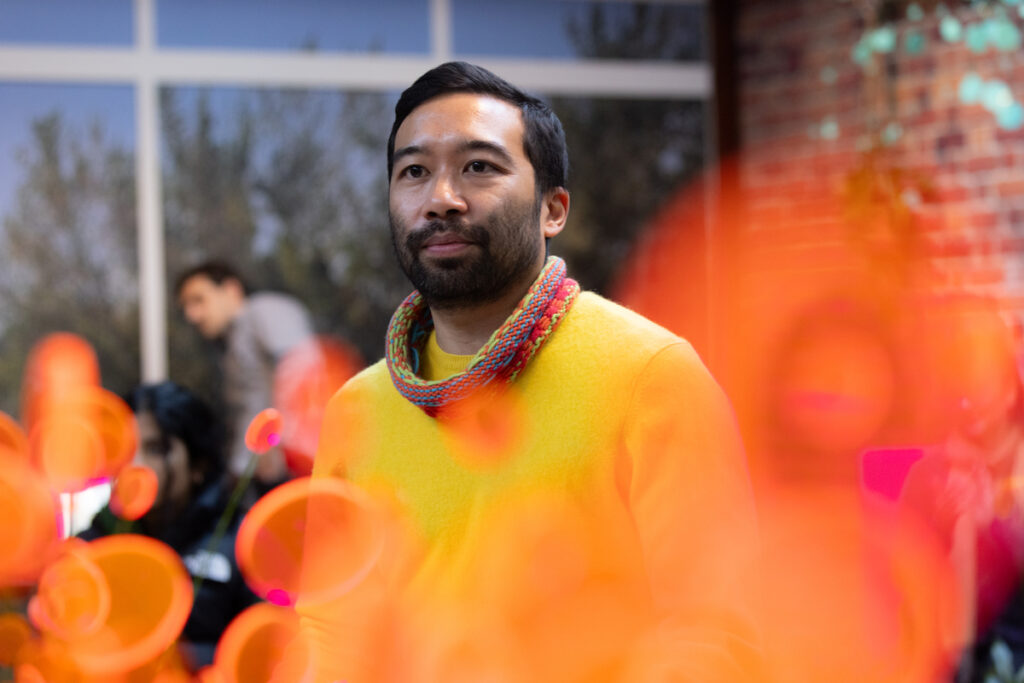
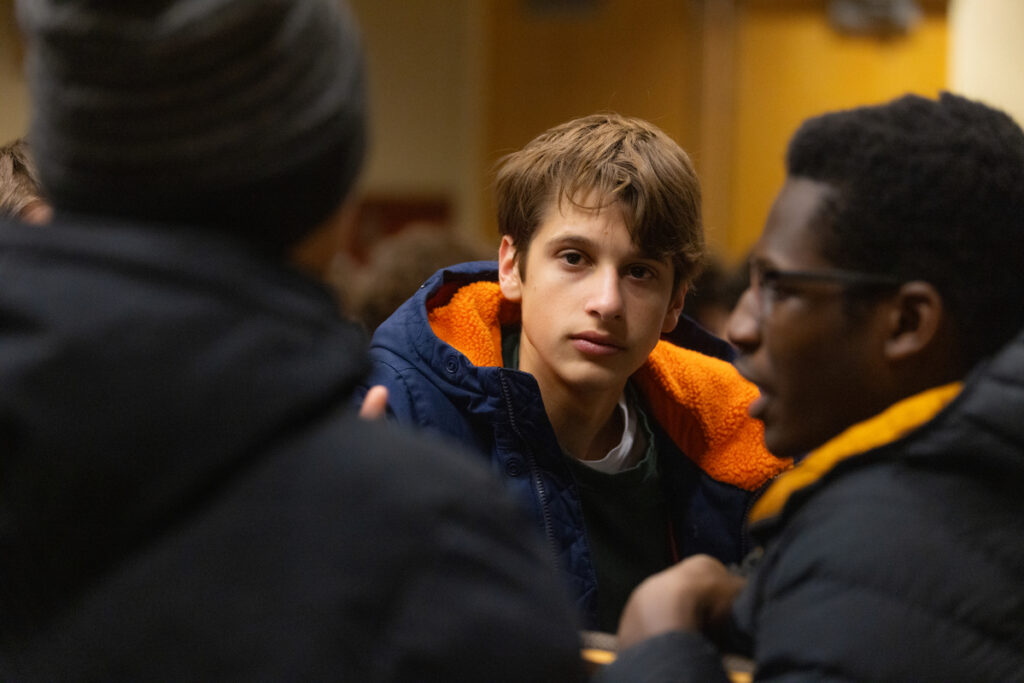
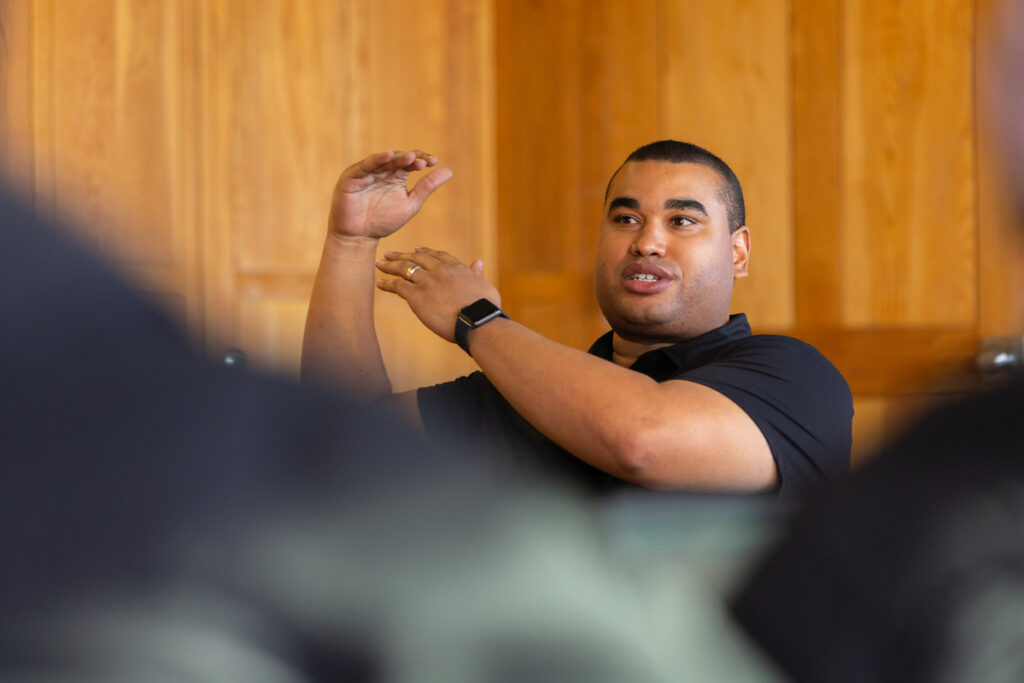
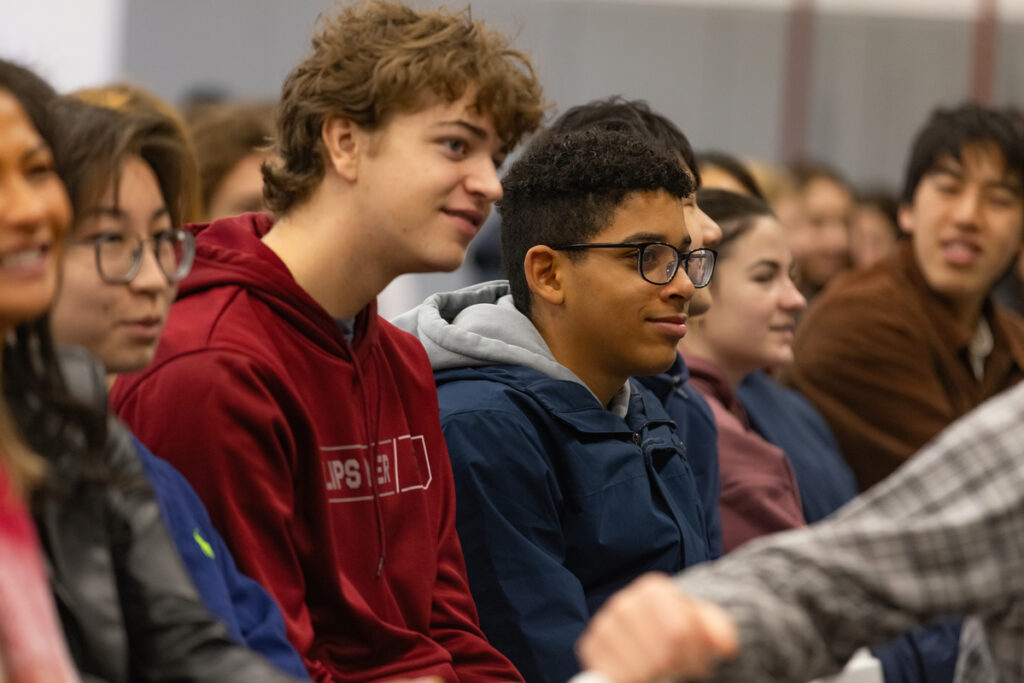
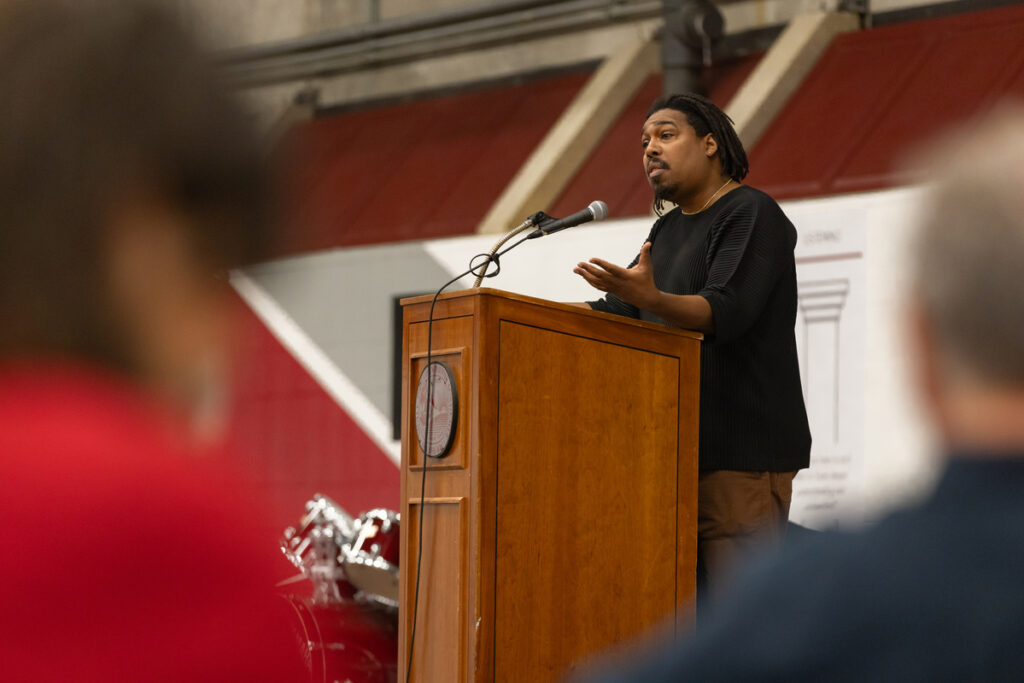
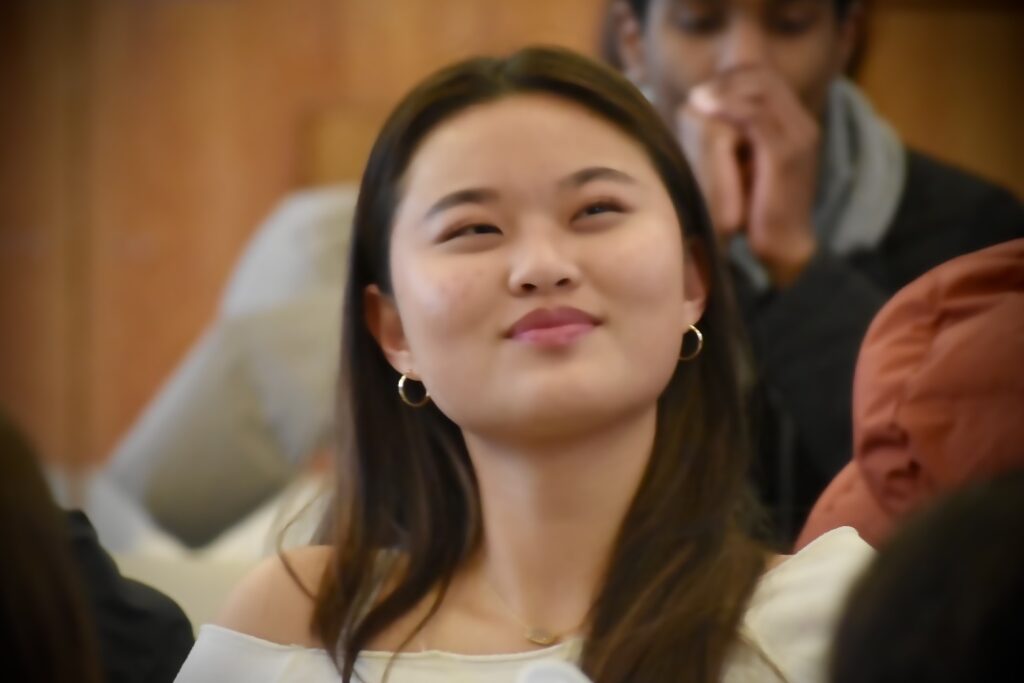
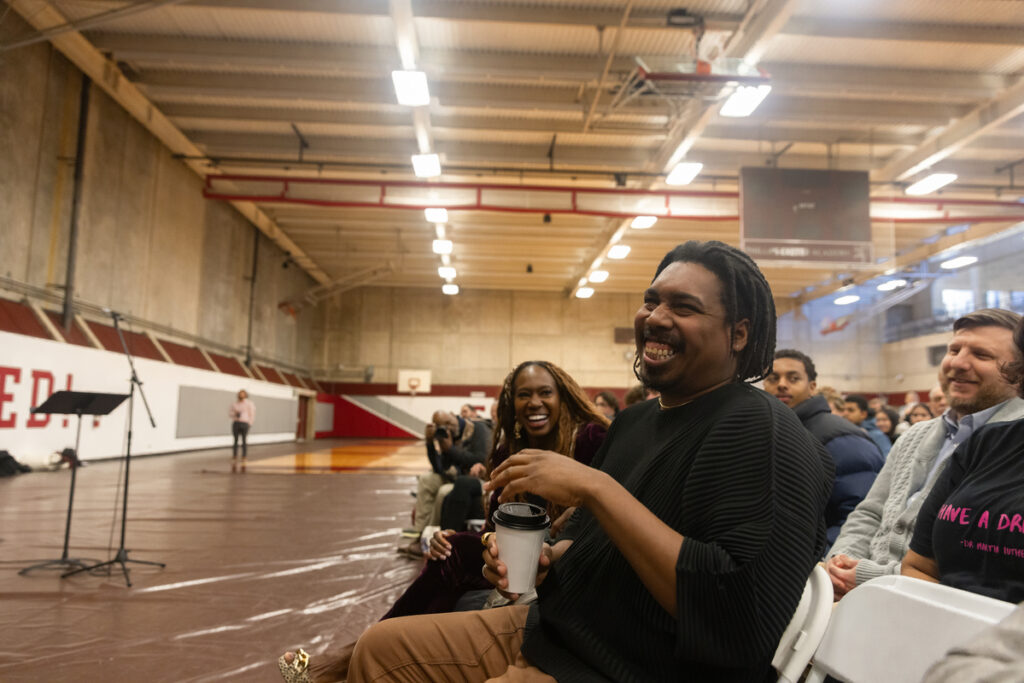
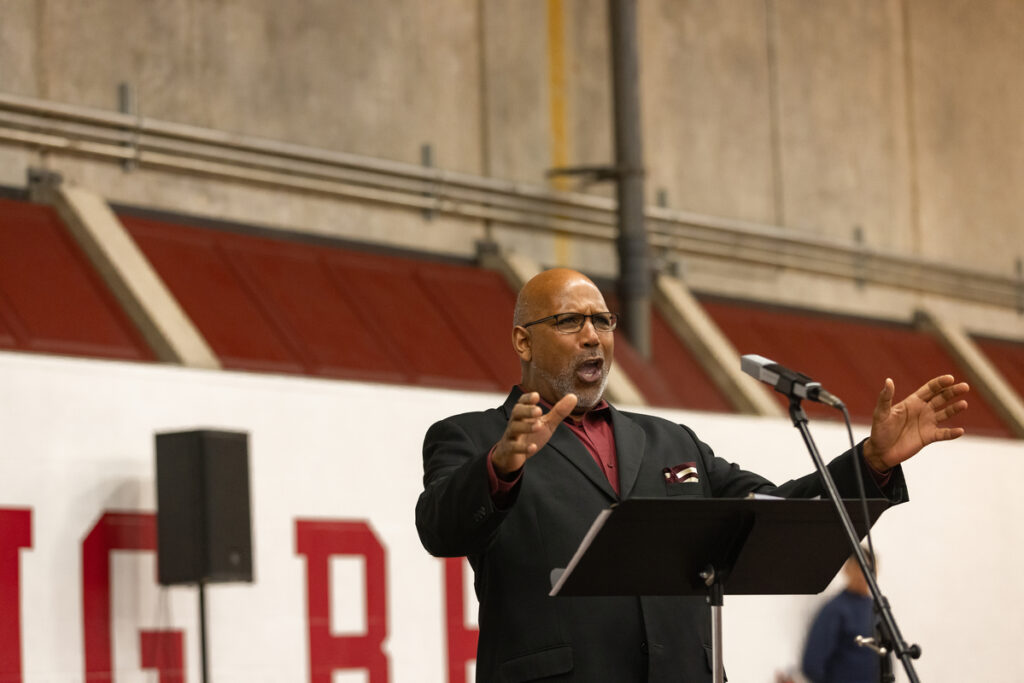
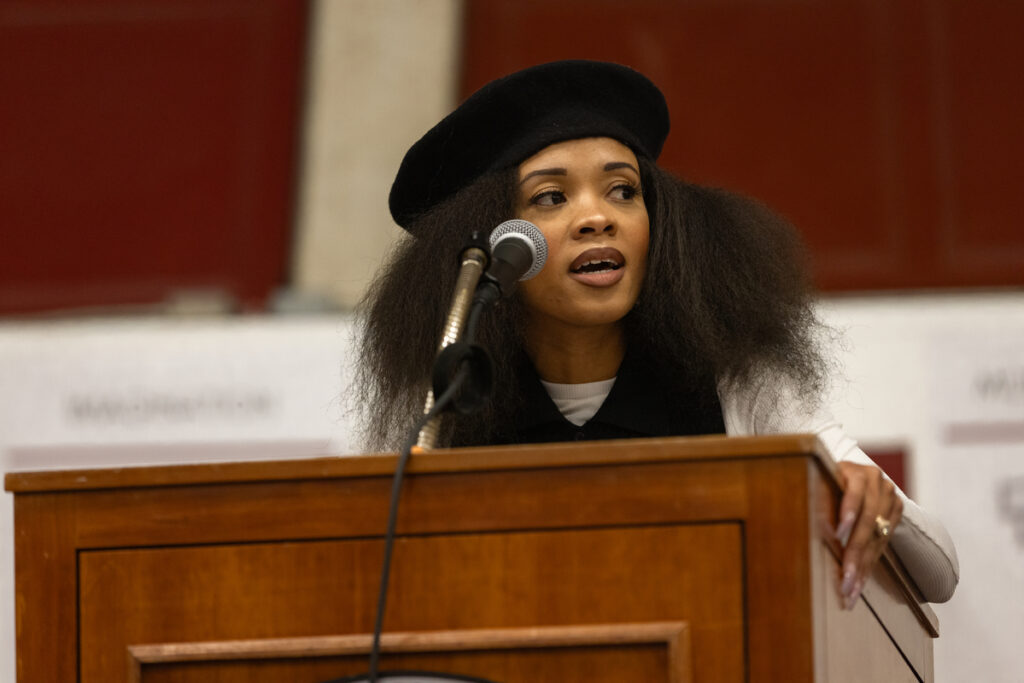
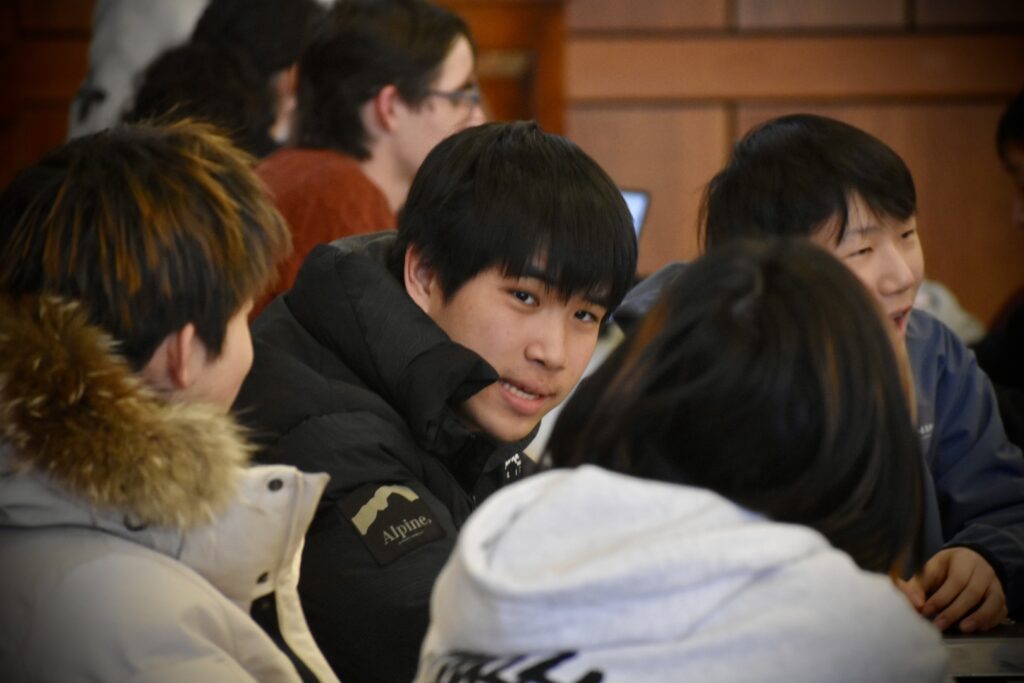
Man up for the ‘Beloved Community’
In the Forum of the Elizabeth Phillips Academy Center, over 100 students, mostly male, took in a workshop titled “Men and Masculinity in Martin Luther King, Jr.’s Beloved Community.” Led by visiting presenter Rory Hart and student panelists Caspar Bailey ’25, Marcus Ingelfinger ’25, RJ Edmonds ’26 and Marco Rodriguez ’27, the topics put forth, and corresponding breakout discussions, centered on King’s message and the adverse effects of toxic masculinity on societal unity.
Paraphrasing King, Hart, chair of the History & Global Studies Department at the Hun School of Princeton, teed up the message for the workshop.
“We have to break out of our default settings for seeing and operating in the world so that we can share in the fruits of the world together and so that we can live and transcend discrimination and prejudice,” Hart said. “Gender is one of the qualitative and quantitative changes that stands between us and King’s vision of the Beloved Community.”
The session quickly became interactive as the moderators invited instant digital feedback to the prompt “What is masculinity?” The projected screen quickly filled with words like “strength” and “muscle.”
“I noticed a lot of the words have to do with characteristics or behavior or your mindset, which is very important in what masculinity actually is,” said Edmonds. “Our goal here is to kind of change that into something positive rather than the common association of some of the words — muscles or strength — things that are usually associated with being a man.”
The students then broke up into small groups to discuss male role models in their lives and the lessons, both good and bad, they have learned from those figures.